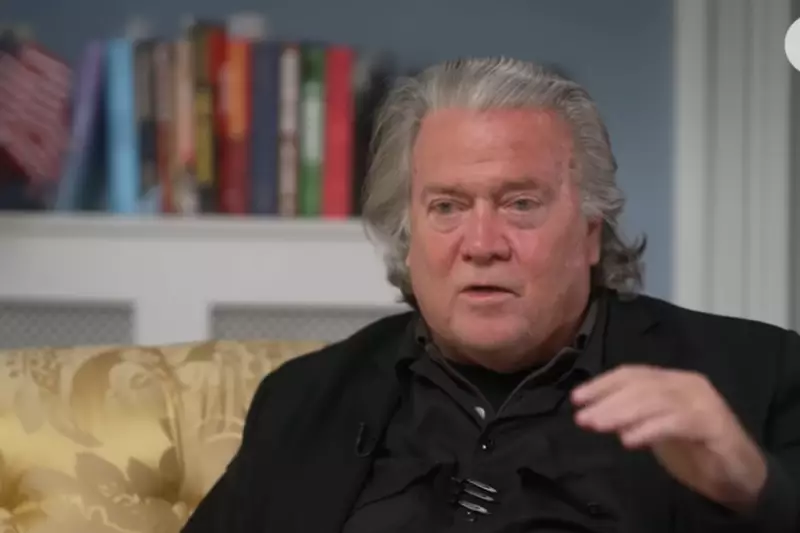
In a revelation that has sent shockwaves through American political circles, former White House strategist Steve Bannon has detailed an audacious plan that could pave the way for Donald Trump to seek an unprecedented third term as US President.
The Constitutional Conundrum
Speaking on his influential 'War Room' podcast, Bannon articulated a vision that would fundamentally challenge America's democratic traditions. The 22nd Amendment of the US Constitution explicitly states that "no person shall be elected to the office of the President more than twice." However, Bannon proposes a radical reinterpretation that has constitutional scholars raising eyebrows.
Bannon's Controversial Interpretation
Bannon's argument hinges on a novel reading of constitutional law that suggests the amendment's restrictions might not apply uniformly. His comments come amid growing speculation about Trump's political ambitions following the upcoming 2024 election.
"This isn't just about breaking norms," Bannon declared during his broadcast. "It's about redefining what's possible within our constitutional framework."
Political Fallout and Reactions
The proposal has ignited fierce debate across the political spectrum:
- Legal experts warn of unprecedented constitutional crisis
- Democratic lawmakers condemn the plan as anti-democratic
- Some Republican allies express cautious interest
- Civil liberties groups voice grave concerns
One constitutional law professor described the idea as "legally dubious but politically explosive," noting that such a move would likely trigger immediate court challenges.
Historical Context and Precedents
While Franklin D. Roosevelt served four terms, this occurred before the 22nd Amendment's ratification in 1951. No president has attempted to circumvent the two-term limit since its establishment, making Bannon's proposal particularly contentious.
The Road Ahead
As the 2024 election approaches, Bannon's comments add another layer of complexity to an already volatile political landscape. The discussion about presidential term limits, once considered settled law, now appears to be back on the table in certain conservative circles.
Whether this remains rhetorical positioning or evolves into a serious political strategy remains to be seen, but the mere suggestion has already succeeded in reshaping the conversation around presidential power and constitutional boundaries.





